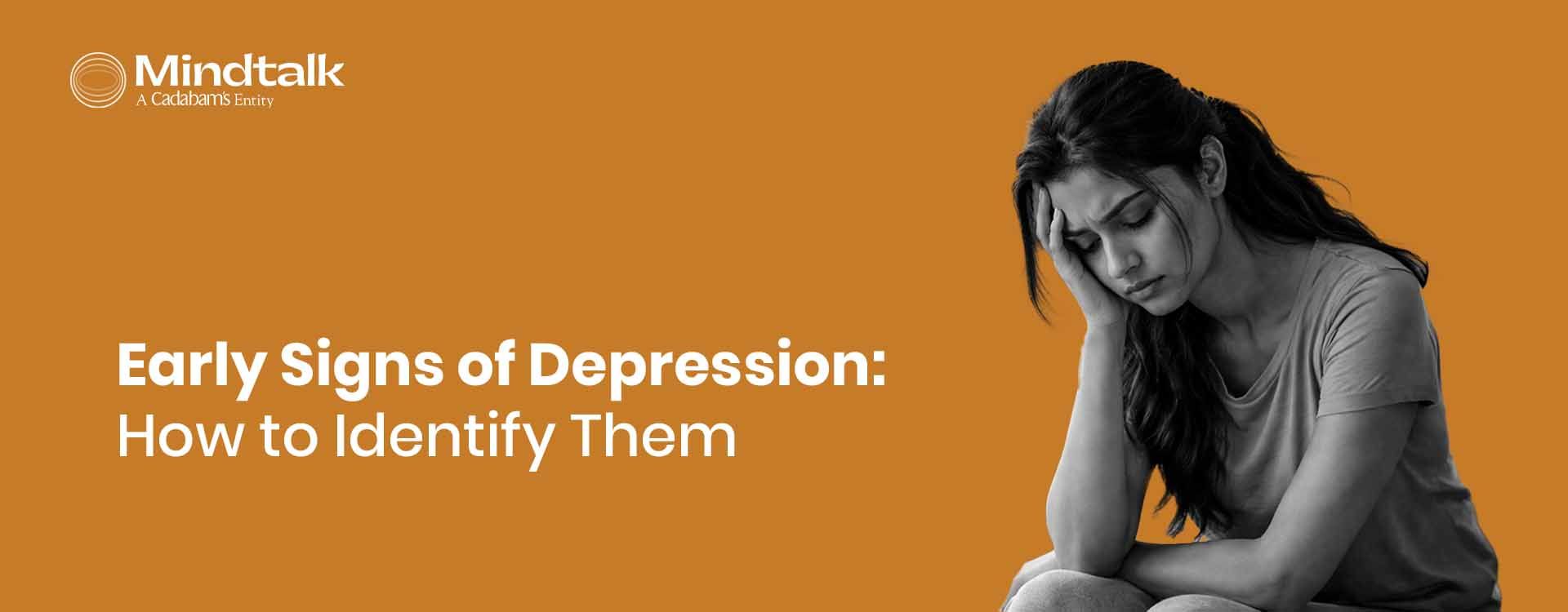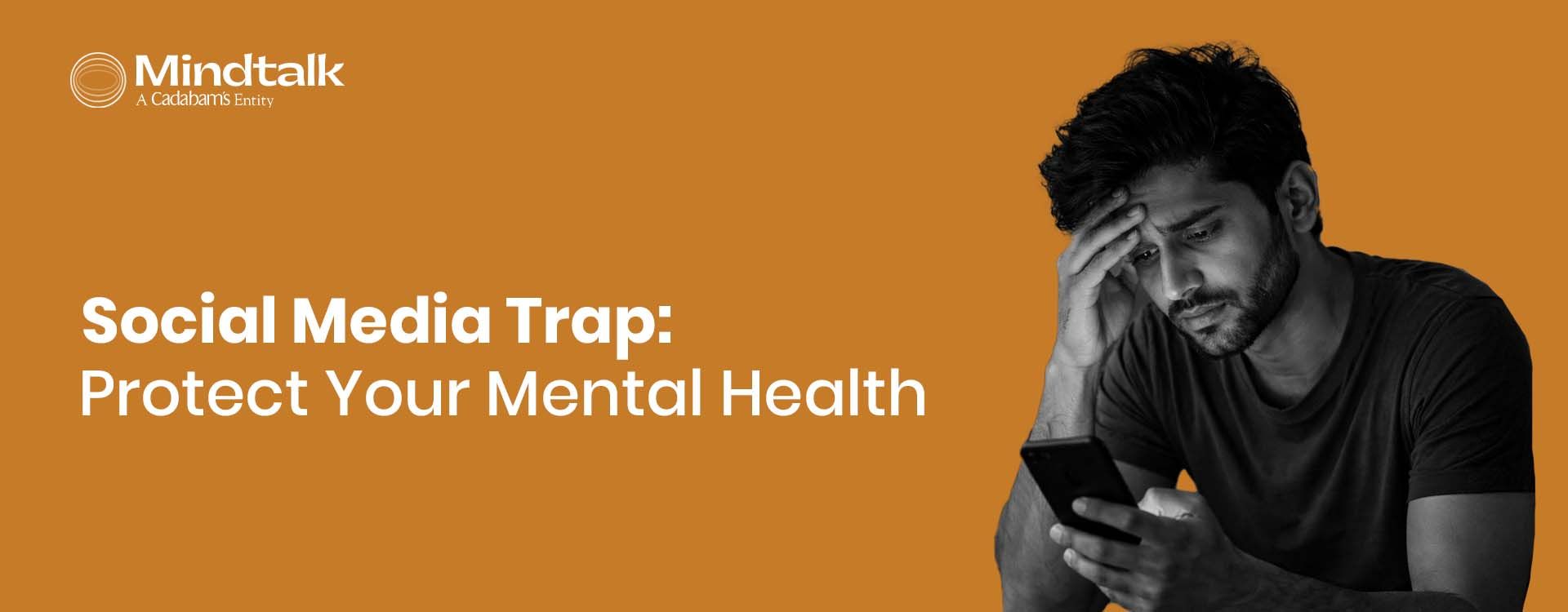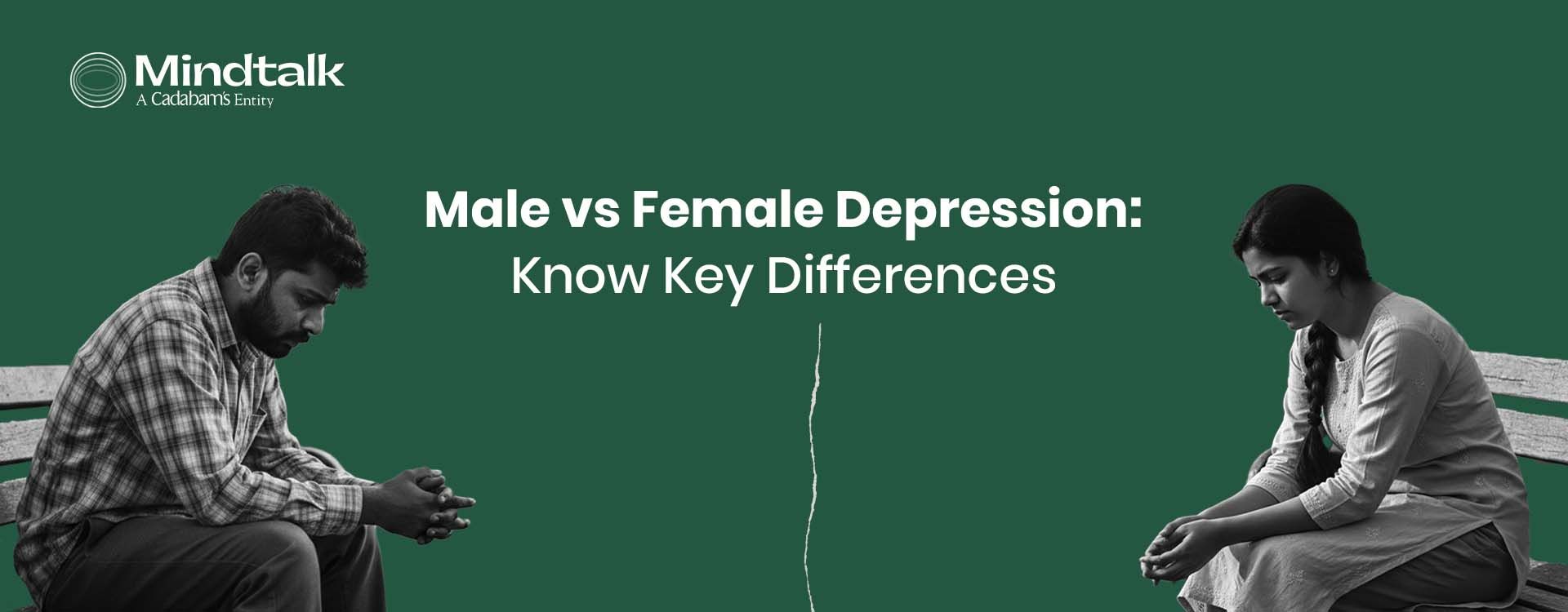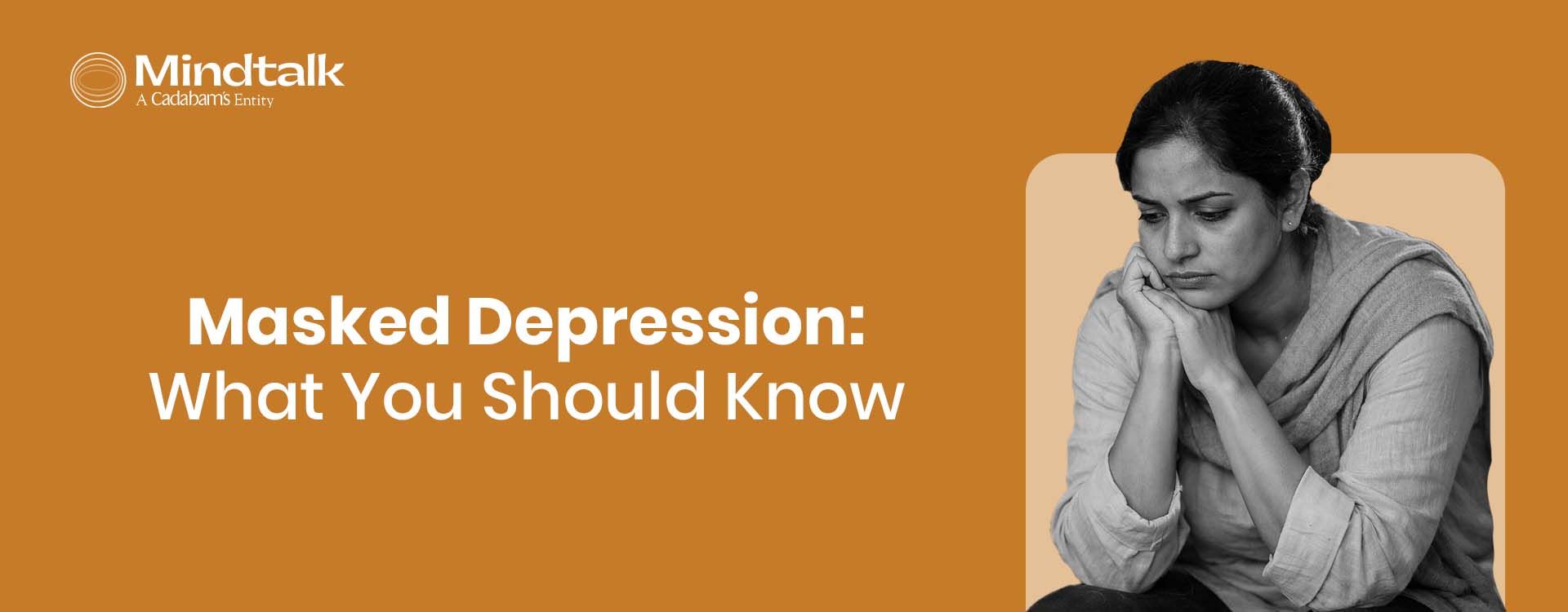Masked Depression: When the Symptoms Are Present, but Sadness Is Not
Masked depression is a diagnosis some people have that stems from the symptoms of depression but does not include the hallmark of sadness.
This type of depression is often overlooked because it becomes buried beneath the symptoms of an overworked individual, physical issues, and even anger, making this form of depression challenging to identify and even more challenging to treat.
Because it flies under the radar, masked depression can lead to serious consequences if left unchecked, including burnout, damaged relationships, and chronic mental health issues.
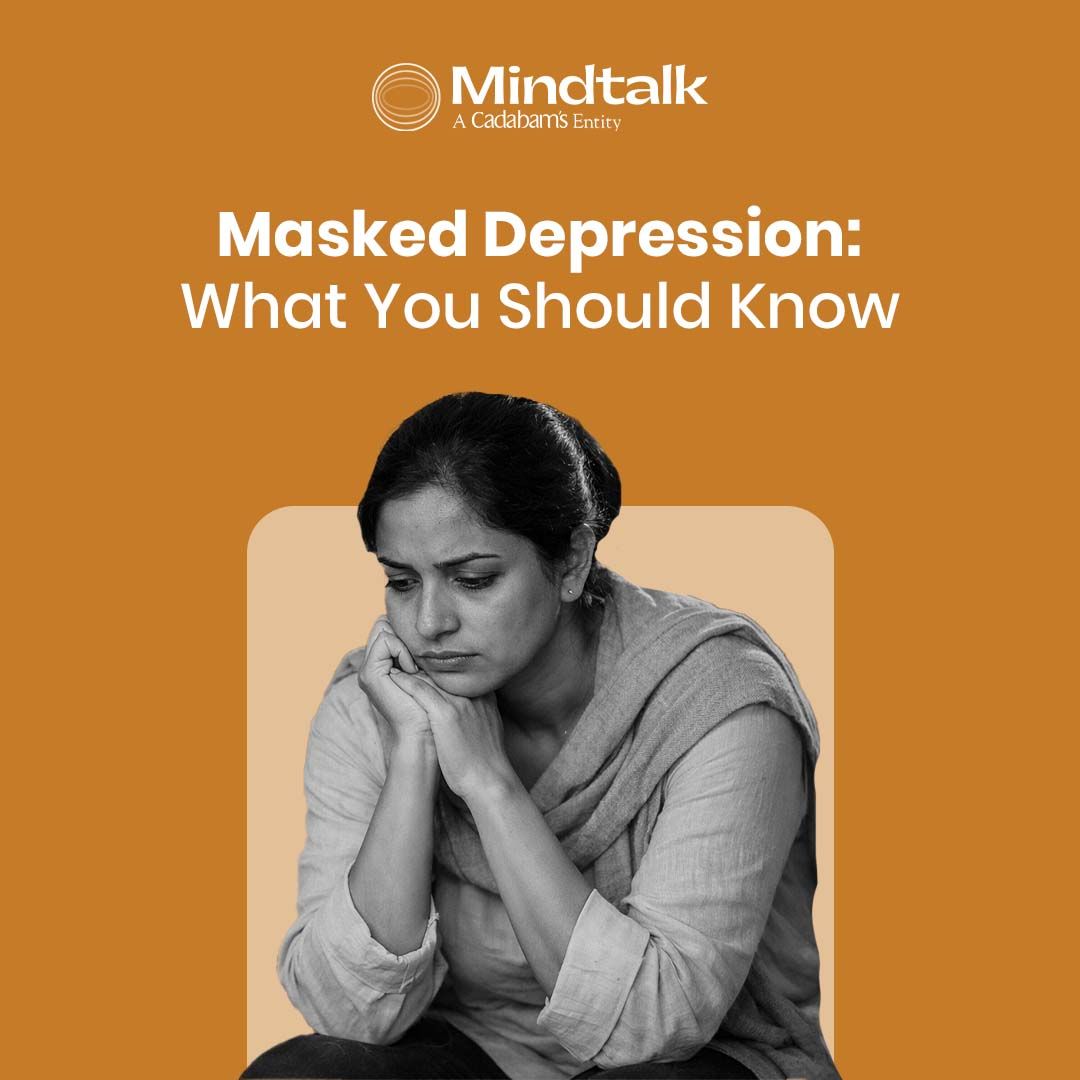
What Is Masked Depression?
This refers to clinical depression in which some of the most common symptoms, such as low mood and persistent sadness are ‘masked’ or hidden. In their place, individuals may experience fatigue, irritability, chronic pain, or compulsive behaviours.
While the individual may not exhibit signs of emotional distress outwardly, they remain deeply affected by the mental and physical burden of depression. This makes it difficult to receive timely and appropriate care, worsening outcomes and separation from helpful treatment.
Why It’s Called ‘Masked’
The term “masked” is used because the emotional distress is not immediately visible. Instead of sadness, individuals may outwardly show signs of distress through headaches, gastrointestinal issues, and back pain.
Furthermore, they may throw themselves into work, become hyperactive, engage in reckless behaviour, or use substances.
Socially, they remain cheerful or functional while privately failing to cope. Emotional pain exists but is either diverted or disguised.
How Is Masked Depression Different from Typical Depression?
Both forms of masked depression and depression are classified as clinical depressions. The difference is in presentation.
Classic depression is characterised by an emotional low. Masked depression is marked by physical or behavioural symptoms unrelated to the emotion itself. Both require treatment but may be acknowledged at different times.
Overlapping Symptoms
Masked depression shares many symptoms with other forms of depression.
- Chronic low-grade fatigue or lethargy.
- Appetite changes or fluctuations in weight.
- Alterations in sleeping patterns (insomnia or hypersomnia).
- Increased sensitivity or aggressive emotional outbursts.
- Decrease in mental sharpness, drive, or active engagement.
These signs are often observed in the absence of sadness, making them easier to misattribute to stress or underlying health conditions.
Unique Features of Masked Depression
Unique features of masked depression can be distinguished by the following ways:
- A lacking sadness, low mood, or dazed state
- Unawareness, denial of, or deflection of emotional distress
- Focusing on the body and its pain or discomfort
- Perfectionism, workaholism, and withdrawal resulting in overcorrection
- Finding emotional assistance difficult to identify
Common Signs and Symptoms That Often Go Unnoticed
Not all forms of depression have an “appearance,” which is the case for masked depression. Here are the most often overlooked indicators:
- Persistent chronic pain or other unexplained bodily issues
- Overwork and hustles
- Emotional numbness, irritability, and even anger outbursts
- Increased risk of all types of reckless behaviour and even substance abuse
- Withdrawal from socially engaging in meaningful ways
- Adherence to compulsive habits or perfectionist traits
- Restlessness and chronic dissatisfaction
- Diminished ability to find enjoyment in hobbies or activities previously enjoyed
Who Is Most at Risk for Masked Depression?
While anyone struggling from masked depression is vulnerable to it, the following groups are further exposed:
- Emotionally pained men due to sociocultural conditioning
- "Coming-of-age” teenagers, who’s symptoms are frequently misidentified as ‘growing up’
- Distressed high-functioning individuals capable of donning a well-practiced mask of distress
- Neglectful caregivers who put themselves last on the well-being priority list
- People struggling from a chronic illness or hold a history of trauma endure these factors too
Risk Factors for Masked Depression
The following factors make someone more likely to struggle with masked depression:
- Suppressing emotions, high stress, or heavily loaded emotional baggage
- Social or Cultural Factors That Inhibit Vulnerability
- Social norms or expectations based on gender often emphasise emotional resilience or strength.
- Previous trauma or unresolved loss.
- Emotional Bluntness
Psychological and Physical Health Impacts
The psychological and physical impacts may manifest as the following:
- Chronic burnout and emotional exhaustion
- Digestive issues or heart-related problems
- Increased risk for addiction or self-injurious behaviours
- Greater likelihood of relationship difficulties and social withdrawal
- Heightened risk of suicide, particularly if depression remains unacknowledged for extended periods of time
Why Masked Depression Often Goes Undiagnosed
Masked depression may often go undiagnosed, here are a few reasons why
- Stigma surrounding emotional expression, particularly for certain demographics such as cultures or genders
- Lack of awareness for the individual and people directly associated with them.
- Being diagnosed with a different ailment while the core issue remains undiagnosed, in this case depression.
- Active denial, wherein the person under consideration fails to recognise the mental health issues they are facing.
- High-functioning disguise makes it difficult for others to see the struggling.
How to Identify Masked Depression in Yourself or Others
Working in depression may be covert but there are red flags. Someone close to you or you personally may seem tired, angry without a cause, or unwell. In this case, there is value in investigation.
People struggling from masked depression may feel that something is unusual or “off” but are unable to place a finger on what exactly it is. Acting early with intervention is imperative to obtaining help.
Self-Reflection Questions for Recognising Masked Depression
- Am I feeling fatigued, despite receiving an adequate amount of sleep?
- Am I disconnected from activities or hobbies that used to bring me joy?
- Am I socially withdrawing and avoiding people altogether?
- Have I resorted to work, exercise, or any other form of substance as a means of escape?
- Am I experiencing unexplained somatic symptoms?
- Do I feel as though I need to constantly “keep it together?”
Signs to Watch for in Loved Ones
Chronic ailments such as headaches and pain in the body’s other regions serve as warning flags.
- They may be expressing more pronounced irritability or restricted emotional responsiveness.
- A marked increase in work engagement
- Avoids idle time or discussions related to emotions.
- Withdrawal from previously enjoyed social pastimes.
- Self-medication through alcohol, food, or other substances.
Treatment Options for Masked Depression
Every type of depression is treatable, and masked depression is no different. It typically responds to psychotherapy and medication alongside lifestyle changes. A tailored approach allows individuals to take control and begin their healing journey.
Role of Therapy and Counselling
Emotional unawareness has definite roots deep within an individual’s thought processes. Cognitive-based therapies (CBT) do an excellent job at helping an individual recognise and reframe these detrimental emotional thoughts.
A trauma-informed strategy is equally valuable for people who are conditioned to hold in sadness. Therapists enable individuals to have safe spaces to process their emotions.
Medical and Holistic Support
Physiological symptoms and depression can be alleviated with structured antidepressant use. Recovery is easier to achieve with proper nutrition and sleep.
Emotional regulation can also be improved with mindfulness and relaxation techniques. Improving one’s mood and easing tension can be done with regular physical exercise.
When to Seek Professional Help
Reaching out to professionals might be necessary when experiencing chronic unexplained pain, mental numbness, or deep fatigue. Such feelings with no clear cause can benefit significantly from talking therapy.
The same goes for those who care about someone exhibiting these signs. Gently encouraging those who claim to feel “fine” but are showing the signs of masked depression can allow for early intervention and a lot of long-term emotional and physical well-being.
Breaking the Silence Around Masked Depression
Masked depression is often overlooked, but it's very real. Just because someone isn't crying or appearing low, it doesn't mean they are not struggling internally.
Depression can take many different forms, and by bringing awareness to this fact, we help reduce the social stigma surrounding it. Self-care and caring for others mean checking in with the people around you. Everyone deserves to be recognised.
Start Your Healing Journey: Masked Depression Help with Mindtalk
Here at Mindtalk, you are never alone. We offer psychologists compassionately trained to deal with masked depression and other concealed mental health issues.
Our psychologists will discover the origin of your hidden symptoms and equip you to get better at your own pace. Your mental health matters, and starting your journey toward improved mental health is waiting for you.
Meet Our Depression Management Experts


